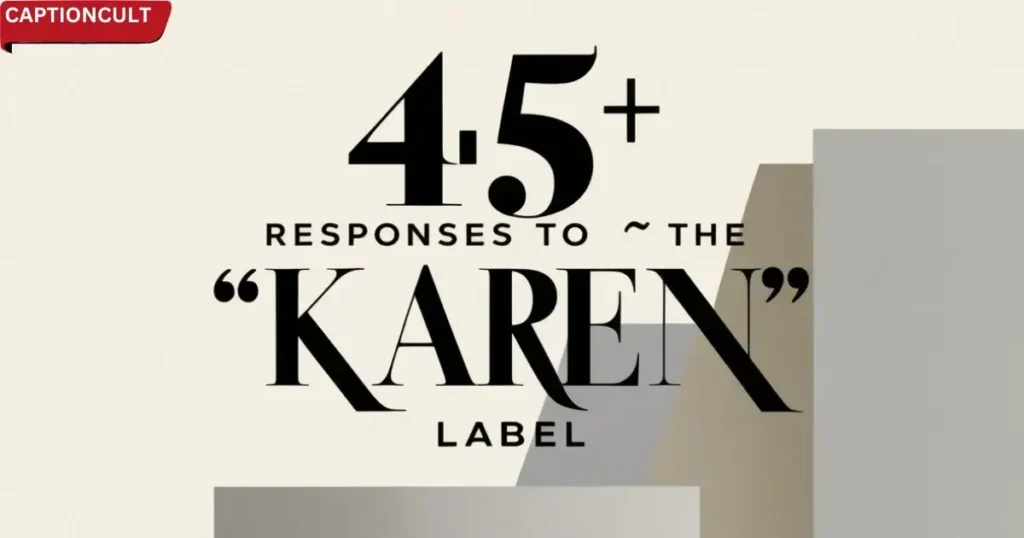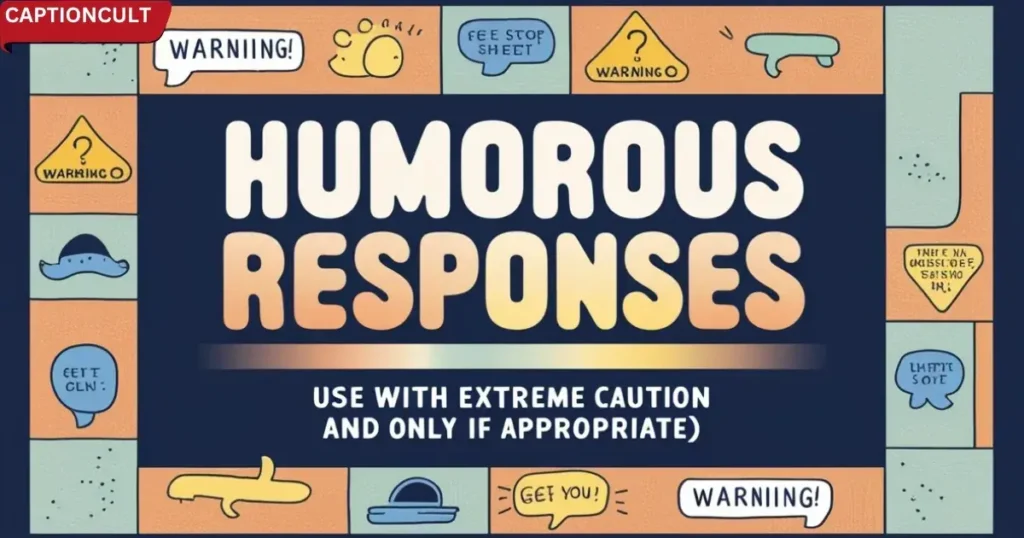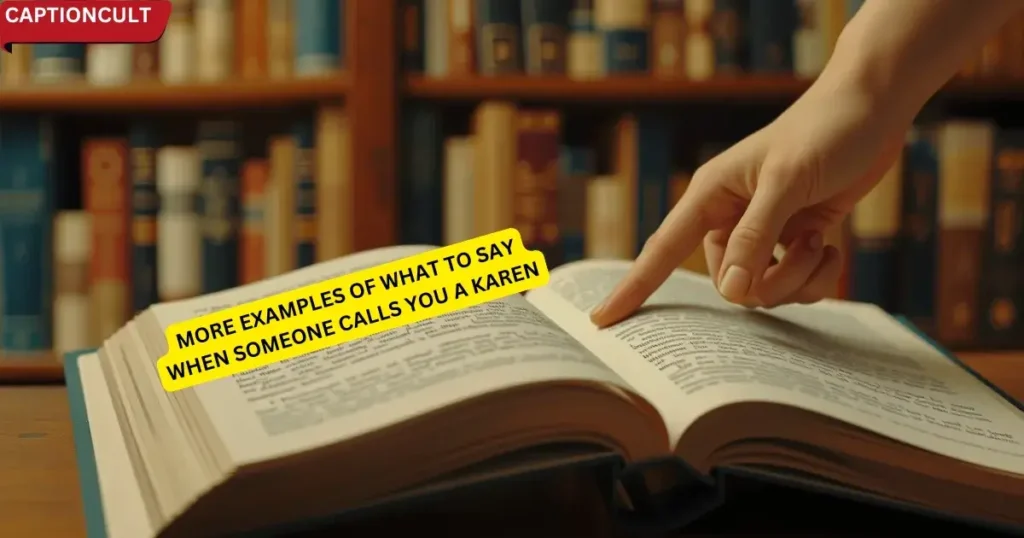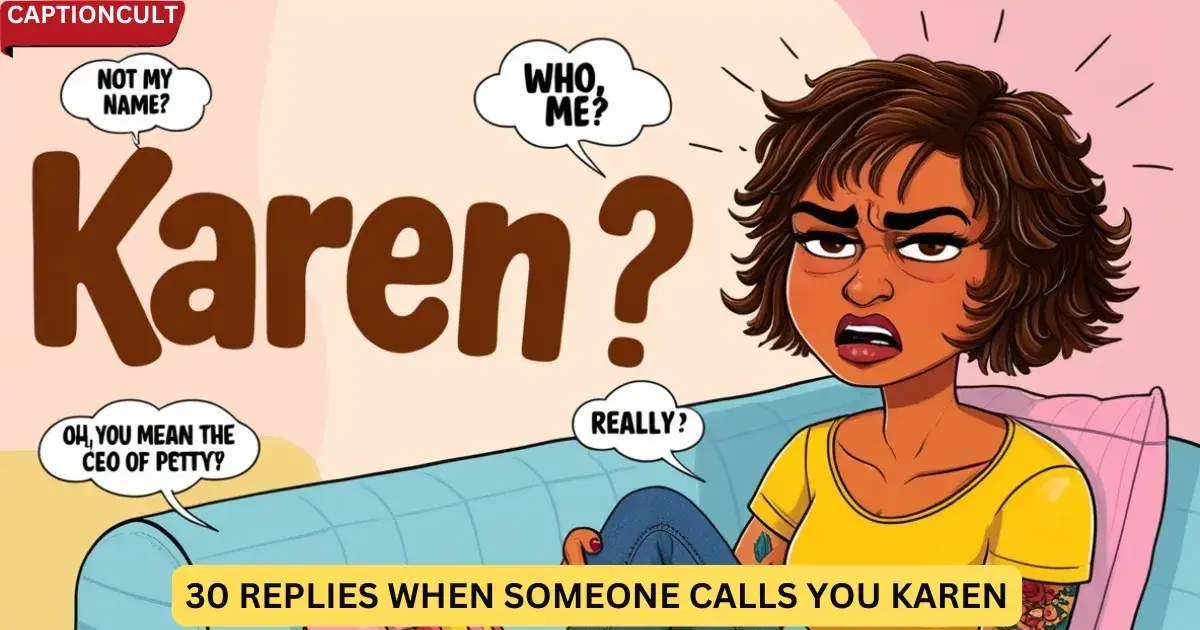The term “Karen,” a loaded label often unfairly attached to women perceived as entitled, demanding, and prone to conflict, has become a ubiquitous part of modern online discourse. Knowing what to say when someone calls you a Karen is crucial, not just for your emotional well-being, but also for de-escalating potentially tense situations. This isn’t merely about finding witty Karen comebacks; it’s about mastering effective communication and conflict resolution strategies.
The sting of being labeled a “Karen” can be substantial, especially when the accusation is unfounded. This guide offers a variety of responses, from calm and measured to playfully assertive, to equip you for navigating this challenging social dynamic. Before delving into specific replies, let’s analyze the context surrounding this pervasive stereotype.
Understanding the “Karen” Stereotype

The “Karen” archetype, often visually associated with a bob-cut hairstyle, embodies specific behaviors: selfishness, rudeness, a pervasive sense of entitlement, and sometimes, overt displays of racism. While the stereotype is overly simplistic and frequently misused, understanding its components is key to crafting appropriate responses. The infamous Central Park birdwatching incident, where a woman wrongly called the police on a Black man for birdwatching, exemplifies the term’s negative connotations. This incident highlights the crucial need to know what to say when someone calls you a Karen, especially when the accusation is based on a misinterpretation.
The “Karen” label often involves name-calling, and the underlying issue rarely centers on the immediate situation; it frequently stems from a perceived pattern of behavior. The individual calling you a “Karen” likely believes you’re exhibiting stereotypical behavior, such as demanding to “speak to the manager” or demonstrating excessive entitlement. Thus, your response needs to address both the immediate insult and the underlying perception fueling the accusation. Knowing what to say when someone calls you a Karen requires careful consideration of this context.
Choosing Your Response: Context is King
Your ideal reply to being labeled a “Karen” hinges significantly on the context. A casual remark among close friends might warrant a lighthearted response, whereas a public accusation demands a more measured approach. Consider these factors before selecting a reply:
- Your relationship with the accuser: Are they close friends, acquaintances, or complete strangers? This impacts the level of informality you can employ when deciding what to say when someone calls you a Karen.
- The setting: Is it a private conversation, a public space, or a professional environment? The setting dictates the appropriate tone.
- The accuser’s tone: Are they aggressive, playful, or genuinely concerned?
- Your own emotional state: Are you feeling calm or provoked? Your emotional state influences how effectively you can manage the situation and determine what to say when someone calls you a Karen.
45+ Responses to the “Karen” Label

Here’s a spectrum of responses, categorized for clarity. Choosing the right reply from this list of options will help you to avoid escalation and address the situation appropriately, thereby answering what to say when someone calls you a Karen.
Calm and Measured Responses (Ideal for de-escalation)
- “I understand your frustration, but let’s focus on solving this issue.” (Emphasizes problem-solving)
- “I’m not trying to be difficult; I’m simply trying to…” (clearly explain your actions). (Provides context)
- “I appreciate your feedback, but I’m unsure I understand your perspective.” (Opens dialogue)
- “Perhaps we can try a different approach. Can we discuss this calmly?” (Suggests a constructive approach)
- “I’m sorry you feel that way. Can we find a solution together?” (Shows empathy)
- “Let’s strive for mutual understanding.” (Focuses on mutual understanding)
- “I value respectful communication. Could we try again?” (Sets a boundary)
- “I’m happy to discuss this further, but please avoid that label.” (Directly addresses the insult)
- “I’m here to resolve this, not engage in labeling.” (Reframes the situation)
- “I’d appreciate a more respectful conversation.” (Reinforces respect)
Assertive but Respectful Responses (Setting boundaries)

- “That’s not an appropriate way to address me.” (Directly challenges the insult)
- “I won’t tolerate name-calling. Let’s discuss this professionally.” (Sets a firm boundary)
- “I expect respect, regardless of your perceptions.” (Reinforces self-respect)
- “Your tone is unacceptable. Let’s try again.” (Calls out inappropriate behavior)
- “I won’t engage in this type of conversation.” (Refuses to participate in negativity)
- “Please focus on the issue, not labels.” (Re-directs the conversation)
- “I’m making a request, not a demand. Can we find a solution?” (Clarifies intent)
Humorous Responses (Use with extreme caution and only if appropriate)

- “Oh, I didn’t realize I was so influential!” (Self-deprecating humor)
- “Is that my new nickname?” (said lightly). (Deflects the insult)
- “Guilty as charged… of having high standards.” (Playful acknowledgement)
- “Well, at least I’m memorable.” (Turns the insult around)
- “I’m not a Karen, I’m a [insert positive label].” (Rebrands oneself)
Addressing the Underlying Issue
- “Perhaps there’s a misunderstanding. Can you explain your concern?” (Focuses on problem-solving)
- “I want to understand your concerns. Can you elaborate?” (Promotes open communication)
- “What can I do to improve the situation?” (Seeks solutions)
- “Help me understand your perspective.” (Invites empathy)
Direct and Confident Responses
- “I won’t justify my actions to someone who resorts to name-calling.”
- “What specifically makes you think I’m a ‘Karen’?”
- “Your opinion doesn’t define me.”
Responses Focused on Education and Awareness

- “The term ‘Karen’ is a harmful stereotype. Let’s focus on the issue.”
- “Labels don’t resolve anything. Let’s have a constructive conversation.”
More Direct and Slightly Aggressive Responses (Use Sparingly)
- “That’s offensive.”
- “Think before you speak.”
- “Do you understand your accusation?”
- “How would you feel if someone called you that?”
- “I won’t let you define me.”
Responses Demonstrating Self-Awareness
- “I understand my behavior might have seemed negative, and I apologize for any inconvenience. I’m always working on improving my communication.”
- “My approach wasn’t ideal. I’ll try to do better next time.”
- “I appreciate your feedback.”
- “I can see how my actions might appear stereotypical. I’m committed to self-improvement and respectful communication.”
More examples of what to say when someone calls you a Karen

- “Actually, my name is [Your Name], not ‘Karen’.”
- “Is that because of my [Hair, Age, Race, etc]? Let’s focus on the issue, not stereotypes.”
- “While I get the reference, ‘Karen’ ignores the specifics of this situation.”
- “I appreciate your feedback, but ‘Karen’ isn’t constructive. Let’s stick to facts and find a solution.”
- “I find that language offensive. Please use respectful language.”
Additional Tips for Responding to the Question: What to Say When Someone Calls You a Karen?
- Stay calm: Deep breaths help maintain composure and prevent escalation.
- Avoid defensiveness: While defending your actions is important, avoid becoming defensive or aggressive.
- Focus on the issue: Redirect the conversation to the problem, not the label.
- Use “I” statements: Express your feelings and perspectives without blaming.
- Set boundaries: Clearly communicate acceptable behavior.
- Practice empathy: Understand the other person’s perspective.
- Seek resolution: Aim for resolution, not winning an argument.
- Reflect on the interaction: Consider what you could have done differently.
- Improve your communication skills: Practice navigating difficult conversations.
FAQs on What to Say When Someone Calls You a Karen?
What does it mean when someone calls you a Karen?
It means they perceive you as entitled, demanding, and possibly rude, often based on stereotypes. This label is frequently used online and in casual conversation.
My Boyfriend Called Me a Karen—What Should I Do?
Open a calm conversation about why he used that label; understand his perspective and address any specific behaviors he found problematic. Focus on mutual understanding and improving communication rather than arguing about the label itself.
How to Respond to a Karen?
Remain calm and respectful, focusing on resolving the underlying issue rather than engaging in a personal conflict. Clearly state your needs and boundaries while employing active listening to understand their perspective, even if you disagree.
What is the best way to deal with a Karen?
Remain calm and focus on resolving the issue at hand, prioritizing respectful communication. Avoid engaging with their negative labels and try to find common ground.
What does it mean when someone tells you to stop being a Karen?
They believe your behavior is excessively demanding, entitled, or inconsiderate. This is a criticism of your actions, not necessarily of your character.
How do I talk back to a Karen?
Assertively, yet respectfully, set boundaries while focusing on de-escalating the situation. Address their concerns directly without getting drawn into a personal attack.
What should I say if someone calls me a Karen?
Deflect the insult by addressing the underlying issue, politely challenging the label, or, if appropriate, using humor to diffuse the tension.
What is the average age of Karen?
There’s no single “Karen” age; the term applies to a stereotype, not a specific demographic, although it’s often associated with middle-aged women.
Conclusion
Mastering what to say when someone calls you a Karen involves more than memorizing replies. It’s about developing strong communication skills, establishing boundaries, and focusing on constructive dialogue. Understanding the stereotype’s origins and practicing effective communication techniques allows you to handle these situations with grace, assertiveness, and composure. The goal isn’t to win an argument but to manage the situation effectively and maintain your dignity.
Prioritizing mutual respect and respectful communication is key to navigating such interactions successfully. Remember to use self-reflection to improve your communication and prevent such situations in the future. The goal is to resolve the issue with respectful disagreement, achieving understanding and applying conflict resolution skills. This helps you maintain your social image positively and shows your commitment to self-improvement.

This is a passionate author whose work explores the power of language and storytelling. With a keen eye for detail and a commitment to excellence, Julian believes that every word has the potential to create meaning and beauty. “Where Words Find Perfection” is a reflection of his dedication to crafting narratives that resonate deeply with readers.

